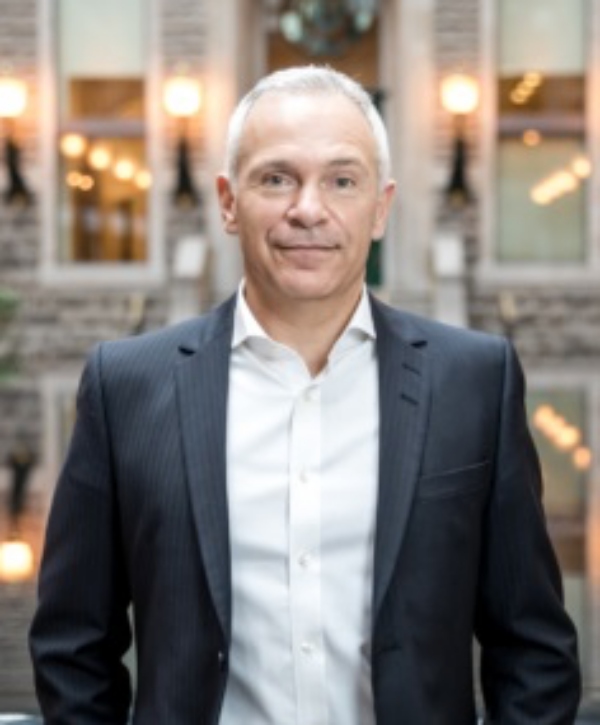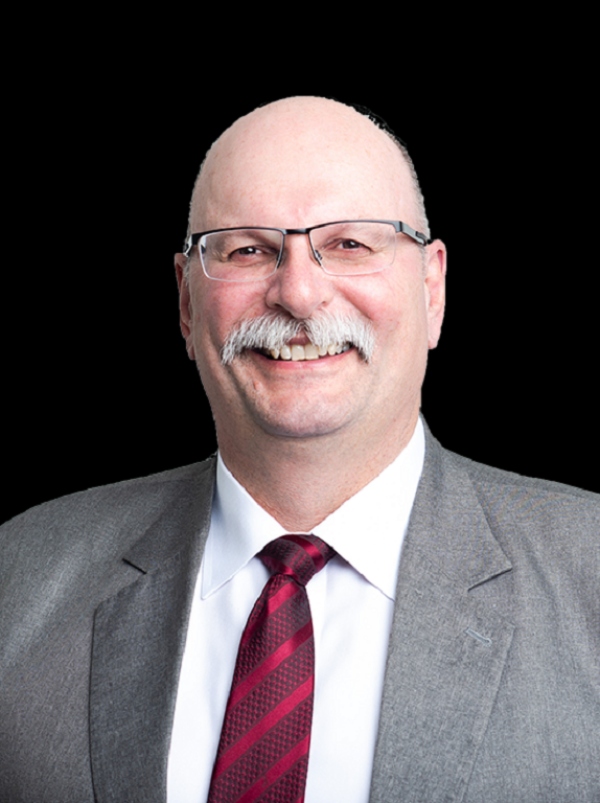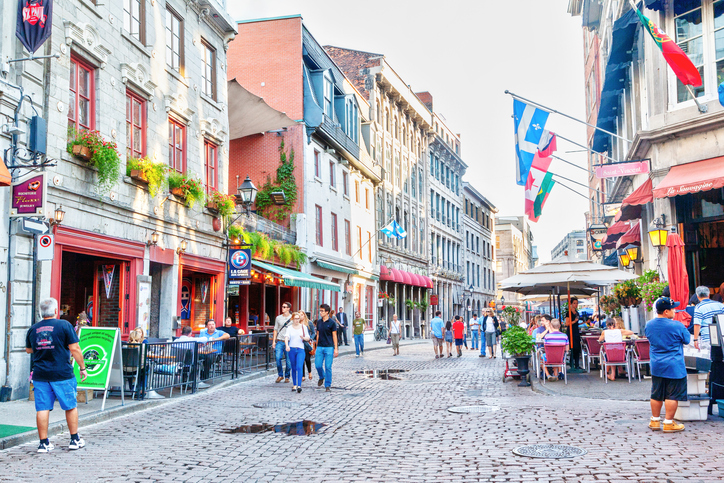Featured Guest
You’ll find this guest among our growing roll of Urban Champions.
-

Stephane Paquet
président-directeur général de Montréal International
-

Marcy Burchfield
Vice President, Economic Blueprint Institute, Toronto Region Board of Trade
-

Malcolm Bruce
CEO, Edmonton Global
-

Jennifer Angel
CEO, Evergreen
-

Fran Delsol
Executive Director, Black Business and Professional Association
5 Key Takeaways
A roundup of the most compelling ideas, themes and quotes from this candid conversation
1. Social Infrastructure and ground-up solutions are key to economic recovery
The recovery from COVID-19 provides cities with an opportunity to improve existing social infrastructure and confront the deep inequity in our default growth-at-any-cost mindset. Nova Scotia’s value proposition as a growing economy is directly linked to the city’s wellbeing and quality of life, says Jennifer Angel, President and CEO of Develop Nova Scotia. “We see great opportunity in continuing to prioritize social infrastructure so that the economy we rebuild is one where everyone can participate. [We also need to change] the way we measure growth and progress to be focused more on wellbeing […] than on growth at the expense of people and planet”.2. Systemic inequality puts minority-owned businesses and workers at greater risk.
COVID-19 has exacerbated existing systemic inequalities in the Black community. Frances Delsol, Executive Director of Black Business and Professional Association, quotes a recently published report by the African Canadian Senate Group and Senator Colin Deacon on the barriers faced by black entrepreneurs: 80% of Black-owned businesses stated that emergency subsidies would not help them as compared to only 37% of non-Black-owned businesses; 85% of Black-owned businesses are worried about permanent closure; and 98% of Black-owned businesses have no more capacity to take on debt. Indeed, 20% of non-Black-owned businesses were able to remain open during the pandemic compared to only 7 to 8% of Black-owned businesses. Says Frances, “The infrastructure has to be dismantled and be rebuilt to include those who have been excluded.”3. Harnessing the potential of turning IP in to GDP
Edmonton’s regional economy was facing challenges well before the pandemic. The Region’s current growth strategy, in large part focused on diversifying the economy and reducing its dependence on the oil and gas sector, aims to help the region become more competitive globally. Malcolm Bruce, CEO of Edmonton Global, says that the region is concentrating on emergent technologies and industries: food and agricultural technology, hydrogen, artificial intelligence (AI), and more. Edmonton is one of the top three major cities in Canada exploring AI, and the University of Alberta is ranked third globally for its AI research. Turning that IP into GDP, says Malcolm, will lead Edmonton through the economic recovery.4. Foreign Direct Investment is closely related to a vibrant and dynamic city
Despite COVID-19 challenges, Stéphane Paquet of Montréal International reports that Montréal just had its best first quarter ever for regarding attracting foreign direct investment (FDI) to the Greater Montréal region. He discusses how FDI is crucial in bringing in new actors and ideas, providing employment opportunities for local talents, and stimulating the local economy. Stéphane highlights that attracting FDI depends on building a vibrant, dynamic, and attractive community where talent can live, work, and play. Cities must invest in urban wellbeing and complete neighbourhoods to stimulate economic growth.5. Transportation infrastructure will help distribute the economic growth and success
According to Marcy Burchfield, Vice President of the Toronto Region Board of Trade, to chart the best path forward, we need to understand the unique dynamics of our economies at the regional and subregional scales. Regional connectivity is also critical. Marcy gives the example of better transportation infrastructure in the Toronto region, such as a Two-Way All-Day commuter GO service. Just last month, the Province of Ontario announced the next step towards this service on the Kitchener line, which will contribute to continuing to stimulate the region’s economic development.Full Panel Transcript
Note to readers: This video session was transcribed using auto-transcribing software. Manual editing was undertaken in an effort to improve readability and clarity. Questions or concerns with the transcription can be directed to events@canurb.org with “transcription” in the subject line.
Full Audience Chatroom Transcript
Note to reader: Chat comments have been edited for ease of readability. The text has not been edited for spelling or grammar. For questions or concerns, please contact events@canurb.org with “Chat Comments” in the subject lin
From Canadian Urban Institute: You can find transcripts and recordings of today’s and all our webinars at https://canurb.org/citytalk
00:29:30 Canadian Urban Institute: Welcome! Folks, please change your chat settings to “all panelists and attendees” so everyone can see your comments. 00:29:46 Canadian Urban Institute: Attendees: where are you tuning in from today? 00:31:52 Tracey Snook: Coming from the Region of Waterloo, situated on the Haldimand Tract, land that was granted to the Haudenosaunee of the Six Nations of the Grand River, and within the territory of the Neutral, Anishinaabe, and Haudenosaunee peoples 00:32:32 Christopher Vaccarella: Tuning in from Montreal! 00:32:45 Canadian Urban Institute: Connect with our panel: Jennifer Angel, President and CEO, Develop Nova Scotia @developns https://www.linkedin.com/in/jennifer-angel/ Malcolm Bruce, CEO, Edmonton Global @EdmontonGlobal https://www.linkedin.com/in/malcolm-bruce-msm-icd-d-96690349/ Marcy Burchfield, Vice President, Economic Blueprint Institute, Toronto Region Board of Trade @Burchfie @TorontoRBOT https://www.linkedin.com/in/marcy-burchfield-72a57710/ Stéphane Paquet, President and CEO, Montréal International @stefpaquet @MTLINTL https://www.linkedin.com/in/st%C3%A9phane-paquet-621b022b/ Frances Delsol, Executive Director, Black Business and Professional Association @TheBBPA https://www.linkedin.com/in/frances-delsol-4822012a/ 00:33:19 Deborah Page: Tuned in from Halifax – greetings everyone! 00:33:37 Angela Kiu: Hello Everyone, Angela Kiu (City of Calgary) here. Happy to be here with you all. 00:33:39 Luc Ouellet: Joining in from Halifax 00:33:50 Canadian Urban Institute: CUI extends a big thank you to our partner for today’s session, the Toronto Region Board of Trade, Economic Blueprint Institute! 00:33:56 John Jung: Great Panel. Hello from the Intelligent Community Forum in NYC and Toronto. 00:34:45 Canadian Urban Institute: Reminding attendees to please change your chat settings to “all panelists and attendees” so everyone can see your comments. Thanks. 00:35:39 Tejas Bhatt: Joining in from North York, Ontario. 00:36:41 Andrew Muir: Hi all, tuning in from Edinburgh, Scotland. Interested to hear the parallels and common themes we look at in UK 00:37:23 Hasneet Punia: Joining from Brampton, Ontario! 00:40:35 AImee Gasparetto: Joining from Halifax NS! 00:40:52 Sean Columbus: Joining in from Mount Albert in York Region 00:41:13 Scott Alain: Listening in from the Nation’s Capital. Thank you to the panel. 00:41:43 Louis Conway: What is the potential of Infrastructure in fostering recovery as in current national infrastructure assessments in Canada, UK and Australia? 00:46:43 Ian O’Donnell: Will stimulus and recovery spending/inflationary pressure lead to the BOC raising rates in the next 12 months or do you think they will keep rates flat for the near-term to work towards greater surety for overall recovery? 00:47:25 Olusola Olufemi: Where can we access these survey or data referred to by Frances? Thanks. 00:47:45 John Jung: The pandemic has accelerated many things both positive and negatively. One of these is the perception of the need of high-speed broadband , especially in non-urban areas. Rural and remote areas have been challenged for many years, but so have neighbourhoods in many urban and suburban areas. This infrastructure is now deemed an essential utility. Are we doing enough at all levels to ensure funding, deployment, training and use of this to ensure we are better connected, especially to assist in recovery and prosperity moving forward? 00:48:54 Rupa Mukherjee-Yazik: 100% agree we need more public access to data. 00:48:58 Arjun Basu: Data in Canada at all levels is… not good. 00:50:20 Canadian Urban Institute: Black entrepreneurs say access to capital among challenges to success, survey finds: https://www.thestar.com/business/2021/05/26/black-entrepreneurs-say-access-to-capital-among-challenges-to-success-survey-finds.html 00:52:28 Ian O’Donnell: Will we see larger urban municipalities shed non-core business steams in an effort to be more efficient and or focusses on certain delivery of services. Would this be beneficial to urban centres or do you see risk going down this quasi-privatization path? 00:53:37 Hasneet Punia: Alberta is leading the way on Micro Mobility in Canada even during a Pandemic! 00:56:01 Tracey Snook: we have, too often, made data generic and “white washed’ and possibly because there has been ignorance in “Canada the Good and Kind” about the need for data along lines that may put a lens on inequity. 00:58:07 Judith Perry: Halifax! 01:10:08 John Jung: FDI and homegrown business development must be seen in a balanced strategy in communities. Both provide advantages and benefits to communities. And yes, more integration of planning and economic development strategies and implementation need to take place to help to create complete communities and robust economic ecosystems. 01:10:53 Tracey Snook: This hybrid model has, in my experience, meant that the local businesses in my neighbourhood are opening, growing and flourishing. We are more active in our transportation and taking in leisure in our local parks and trails. I am sure that the core businesses in downtowns are suffering and will have some rebound when we return to the office, even if only part time (especially when travel opens up again and people can return as tourists). But I’d also suggest that the folks who have made the choice to live in those core areas will be more intentional in their support of those businesses and they will survive too and maybe those areas are now going to be more affordable for people to choose to set up and settle. 01:10:58 Louis Conway: How will economic recovery and Infrastructure stimulus contribute to emissions reduction rather than emissions growth? 01:12:39 Lester Brown: Thank you Marcy. Presently on a working group dealing with the 1st Parliament site. Your ideas of building diverse uses in communities and the importance of the tourist industry. 01:15:00 Andrew Muir: @Louis Conway – good question. Infrastructure build will increase emissions in the short term but if adoption of eg digital solutions from this enabling infrastructure is done right, then the benefits will outweigh the costs. Our believe is that it’s not possible to grow an economy in a developed nation, meet net-zero targets and care for the social wellbeing of the nation without this being underpinned by digital solutions. 01:15:28 John Jung: Talent creation, attraction and retention is a key to attracting FDI but also in creating, nurturing and retaining homegrown businesses, especially startups. 01:16:21 Louis Conway: Is a new definition of Infrastructure needed if current Infrastructure should be “dismantled”? 01:17:23 Niloo Boroun: we must create an attractive ecosystem both economically and socially to attract investment, talent and business. Your business will thrive where the talent is. they are not mutually exclusive of one another. 01:19:45 Niloo Boroun: In 2020 alone, CCCA members closed 244 projects which created 24 511 jobs with an investment value of $6.2Billion……these are local jobs, helping the local ecosystem grow and increase the supply chain for domestic firms. 01:20:45 John Jung: CCCA includes KW 01:22:22 jeffery parker: The 2016 UN Conference on Urban Development predicted every large and medium sized city would double in population in 20 years. A major UN paper, in 44 languages, gives guidelines for sustainable development in urban environments. Canada sent a group of scientists this urban development conference who presented in Quito. The guidelines are brilliant!!! J. Parker 01:22:52 John Jung: But I agree, CCCA is attracting FDI to the top 12 cities/regions in Canada but I think that there are many other communities that it misses – what about NB, PEI and Nfld for instance? 01:25:09 Tracey Snook: I think that we can’t underestimate the eco-system and attractiveness that exists in rural places too as the work/life balance, or the relaxed lifestyle that comes in Glace Bay or places such as that. As many businesses have pivoted due to Pandemic needs, there will always be those who can work from home and will make home where they are (and the economic benefits that will happen in those communities will be dynamic). Can we find a way that supports all of these communities? Kudos to Jen et el for ensuring that there is the necessary tech to do the business from anywhere in NS. We can’t lose the benefit of all the stretch and change that came from this crisis by returning to how things were (or even wanting to go back to that) when things open. 01:25:30 Louis Conway: How can Canada meet its requirements to reduce emissions under the Paris agreement and implement recovery plans? 01:26:07 Canadian Urban Institute: CUI extends a big thank you to our partner for today’s session, the Toronto Region Board of Trade, Economic Blueprint Institute! You can find transcripts and recordings of today’s and all our sessions at https://www.canurb.org/citytalk Keep the conversation going #CityTalk @canurb 01:27:06 Canadian Urban Institute: Join us next week on Thursday, June 3rd from Noon to 1:15 p.m. ET for an intimate conversation with world-renowned architect, Douglas Cardinal. For more information and to register: https://us02web.zoom.us/webinar/register/WN_pSb0BxJeTn-gqwpRpbHHaA 01:27:45 John Jung: Thank you to the panel and to Mary and the CUI for enabling this important conversation. Let’s take this conversation forward. 01:29:19 Andréa Callà: Thank you CUI and panelists for a great session, very informative. 01:29:24 Natalie Smith: thank you! 01:29:41 Tracey Snook: this was SO VERY interesting – thanks all. 01:30:00 Tejas Bhatt: Thank you all! This was great! 01:30:02 Hasneet Punia: Thank you! 01:30:09 Sana(Zohreh) Karami: This was very great session. Thank you!


